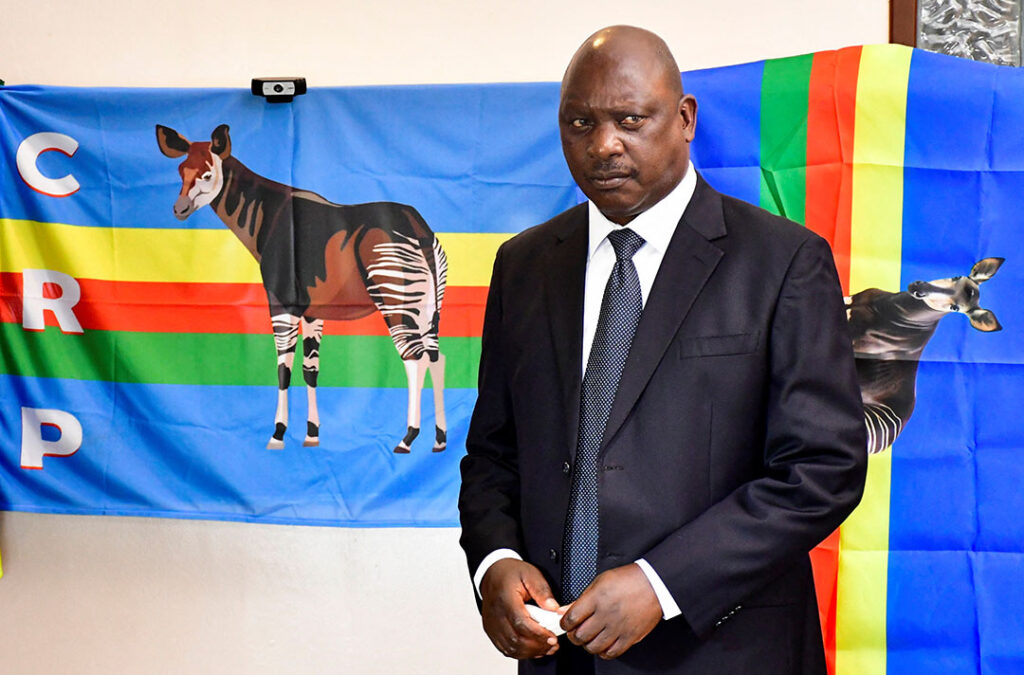Another armed group has emerged to further destabilize the eastern region of the Democratic Republic of the Congo.
Led by convicted war criminal Thomas Lubanga, the Convention for the Popular Revolution (CPR) reportedly engaged the Congolese military (FARDC) in heavy fighting in August at two locations about 30 kilometers north of Ituri province’s capital, Bunia.
Dieudonne Losa, a civil society activist in Bunia, said 19 civilians died, including 13 elderly women and four young girls.
“What is happening north of Bunia is an unacceptable situation,” Losa told Reuters.
FARDC said the CPR had attempted multiple attacks and that Soldiers killed 12 of the group’s fighters. A CPR commander acknowledged to Reuters that there were clashes but claimed only “one of my men” was killed.
In 2002, Lubanga achieved infamy as leader of the Union of Congolese Patriots (UPC) militia in Ituri, where his fighters were accused of numerous human rights violations, including ethnic massacres, murder, rape, torture and mutilation.
The International Criminal Court convicted him of recruiting and forcibly conscripting child fighters and deploying them in combat. The Hague sentenced Lubanga to 14 years in prison in 2012.
After serving two-thirds of his sentence, he was released in 2020. Congolese President Félix Tshisekedi stirred controversy when he quickly appointed Lubanga to a government task force charged with bringing peace to Ituri.
In 2022, Lubanga was kidnapped by a rebel group for two months, which he later blamed on the government. In 2023, he was elected as a provincial deputy in Ituri, but it was annulled due to fraud. Since then, he reportedly has been based in Uganda.
In March 2025, Lubanga told international media that he was forming the CPR to topple Ituri’s regional government, accusing authorities of failing to protect civilians and excluding him from peace efforts.
He told Reuters that the CPR had armed men in three areas of the province, but they had not begun hostilities at that time. To attain peace in Ituri, he said, “requires an immediate change in governance and government.”
Lubanga’s reemergence as the leader of the CPR represents a threat to stability in Ituri province and the Great Lakes region, the Robert Lansing Institute for Global Threats and Democracies Studies wrote in an April analysis:
“Though not yet a dominant armed force, the CPR could evolve into a dangerous spoiler actor — particularly if the DRC’s ongoing crises in the east continue to deepen.”
It is unclear how many fighters Lubanga might control. In 2024, United Nations experts accused him of supporting and structuring the Ituri militia known as Zaire-FPAC and coordinating with the M23 rebel group, which has seized large chunks of territory in neighboring North Kivu province.
With Lubanga’s help, Zaire recruited former UPC fighters and established training centers in Ituri and Uganda that were supervised by instructors from Ituri, Uganda and Rwanda, according to the U.N.
Now allied with the M23, the Zaire militia has built an arsenal with pickup trucks, militarized boats and surveillance drones, reinforcing its presence in Ituri and its role in the eastern DRC’s broader conflicts.
More than 120 armed groups operate in eastern DRC, contributing mightily to a humanitarian crisis in which tens of thousands of civilians have fled their homes. Ugandan troops have maintained a presence in Ituri for years to help FARDC fight the Allied Democratic Forces rebel group, which is affiliated with the Islamic State group.
Security experts believe that the CRP is more likely to exacerbate the proliferation of armed groups than bring peace.
“[The CPR] represents a dangerous fusion of populist rhetoric, ethnic grievance and militarized ambition,” the Lansing Institute wrote. “While its current impact is limited, its potential to destabilize eastern DRC and erode regional security is significant.
“The international community, alongside Congolese authorities, must monitor this group closely, address the root causes of rebellion, and support inclusive political processes that reduce the appeal of armed struggle.”

